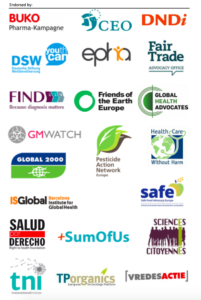Civil society has published a reaction to the leaked impact assessment of the next EU Research Framework Programme (FP9) and the European Commission’s proposal to merge of parts of Horizon 2020 Pillar II with Pillar III into one pillar “Global Challenges”.
The next programme will build on the current programme Horizon 2020, which include three pillars focused respectively on excellent science, industrial competitiveness and societal challenges. According to a leaked impact assessment the new second pillar “will integrate the Horizon 2020 Societal Challenges and Leadership in Enabling Industrial technologies parts to better address EU policy priorities (including meeting the SDGs) and support industrial competitiveness”.
Societal impact has been found to be insufficient in Horizon 2020, and civil society is concerned the situation could worsen in the next programme if the objective of addressing societal or global challenges is diluted by adding the objective of industrial competitiveness to the same pillar.
Jill McArdle, Advocacy Officer at Global Health Advocates, said:
“we are very concerned about the suggested merging of aspects of the Industrial Leadership pillar with the Societal Challenges pillar of Horizon 2020. An independent pillar focused on societal challenges is vital to achieving societal impact. This pillar should be clearly designed around the Sustainable Development Goals, otherwise we run the risk that Agenda 2030 will be subordinated to other EU policy objectives in the next framework programme.”
While industry has a role to play in addressing societal challenges, it is vital that addressing societal challenges and delivering societal impact remains the main objective of this pillar. Dedicated and ambitious funding, is needed in FP9 if the EU is serious about societal impact and delivering on international commitments such as the SDGs and the Paris Climate Agreement.




